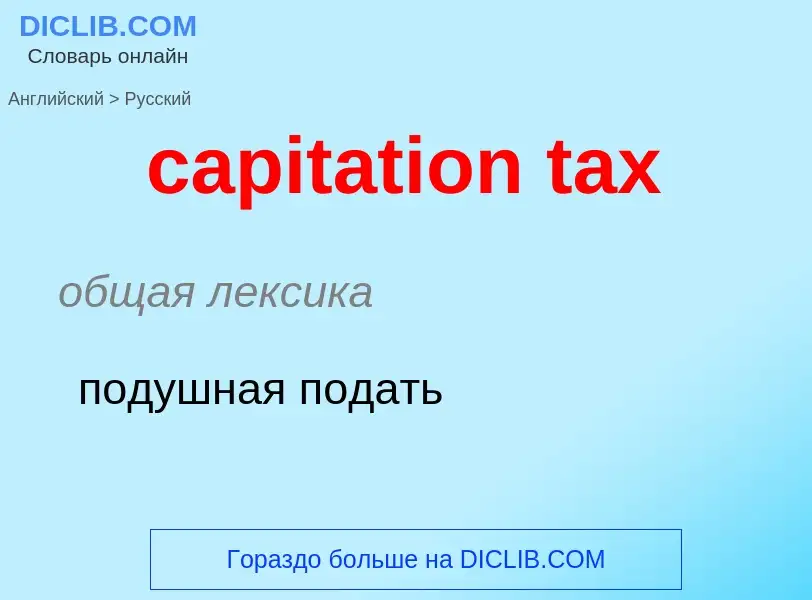Translation and analysis of words by ChatGPT artificial intelligence
On this page you can get a detailed analysis of a word or phrase, produced by the best artificial intelligence technology to date:
- how the word is used
- frequency of use
- it is used more often in oral or written speech
- word translation options
- usage examples (several phrases with translation)
- etymology
capitation tax - translation to russian
общая лексика
подушная подать
Wikipedia
A poll tax, also known as head tax or capitation, is a tax levied as a fixed sum on every liable individual (typically every adult), without reference to income or resources. Poll is an archaic term for "head" or "top of the head". The sense of "counting heads" is found in phrases like polling place and opinion poll.
Head taxes were important sources of revenue for many governments from ancient times until the 19th century. In the United Kingdom, poll taxes were levied by the governments of John of Gaunt in the 14th century, Charles II in the 17th and Margaret Thatcher in the 20th century. In the United States, voting poll taxes (whose payment was a precondition to voting in an election) have been used to disenfranchise impoverished and minority voters (especially under Reconstruction).
By their very nature, poll taxes are considered regressive. Many other economists brand them as highly harmful taxes for low incomes (100 monetary units of a fortune of 10,000 represent 1% of said wealth, while 100 monetary units of a fortune of 500 represents 20%). Its acceptance or "neutrality" (there is no truly neutral tax on the population) will depend on the amount of payment that is agreed upon and set by the government body. Therefore, low amounts generally go unnoticed just as high amounts generate many tax revolts. Examples of such tax riots are the 1381 Peasants' Revolt in England and the 1906 Bambatha Rebellion against colonial rule in South Africa.

